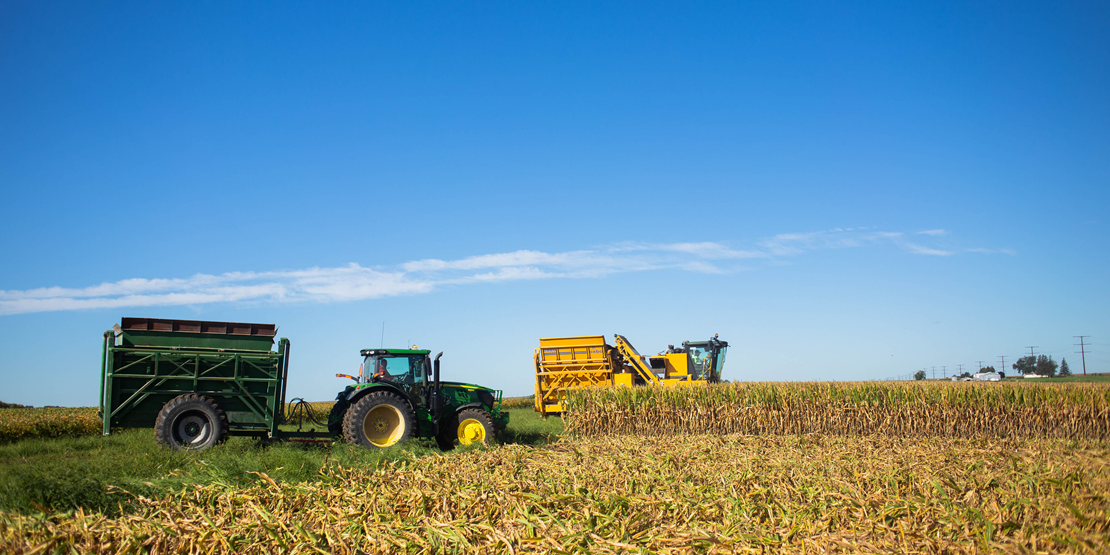
Tax filing season starts in late January, and for many farmers, 2022 was a high-income year. While a bump in business revenue doesn’t always mean you’ll owe more in taxes, this time it could. Gathering tax-related documents and assessing income tax liability now could provide extra time to save money to use toward outstanding taxes or help you decide the best use of an expected refund.
Consider these tips as you wind down tax year 2022 and prepare to file a federal income tax return by April 18, 2023.
Ask yourself the right questions.
This short list of questions only represents a few possible farm business tax scenarios. The purpose here is to get you thinking about potential tax deductions and credits.
• Did I operate my vehicle for business use? If so, you can deduct 62.5 cents for each eligible business mile.
• Did I have a section 179 expense deduction? You might benefit from the increased dollar limit for 2022. See chapter 7 of the IRS Publication 225, Farmers Tax Guide for details.
• Am I expecting a special depreciation allowance? Keep in mind that it’s been phased down to 80% for certain qualified property acquired during a set period of time.
• Did my farm business experience a federally declared disaster during tax year 2022? If so, you might be eligible for a tax deduction. See IRS Publication 547, Casualties, Disasters, and Thefts for details.
• Did I have farming losses in the past five years? If yes, you might be eligible for special rules that allow you to carry back those losses. Since this change likely affects returns you’ve already filed, consult a tax professional or the IRS directly for guidance on filing an amended return.
• Can I contribute more money to my SEP-IRA for tax year 2022? If you have a Simplified Employee Pension (SEP) - Individual Retirement Account (IRA), contributions cannot exceed 25% of the employee’s compensation, or $61,000. LSB has an experienced Wealth Management team that is happy to work with you and set up a personalized plan that fits your needs.
Gather relevant documents.
Proper recordkeeping is a key aspect of most successful businesses. As with other types of companies, nonfarm receipts and nonfarm income should be kept separate from farm receipts and income. If you believe you’re eligible for certain tax credits or deductions, be sure you have the documents to support your claims. See chapters 3 and 4 of the IRS Publication 225, Farmers Tax Guide for suggested documentation.
Decide if you need an extension.
Taxpayers who need more time to get their tax documents in order can request an extension. An IRS tax extension gives taxpayers an extra six months to file. For example, since Tax Day falls on April 18, 2023, you’ll have until October 18, 2023, to file your return. If you owe the IRS money, the extension does not remove the late payment penalty. However, it can save you from a failure-to-file penalty, which is at least 5% of the unpaid taxes for each month the return is late.
If you’re expecting a tax refund, plan on using the money to help build a sound financial future. Request a free, no-obligation consultation with a member of LSB’s Wealth Management team, who can help make the most of every dollar.
Securities are offered through LPL Financial (LPL), a registered broker-dealer (member FINRA/SIPC). Insurance products are offered through LPL or its licensed affiliates. Investment advice offered through LSB Capital Management,Inc., a registered investment advisor and separate entity from LPL Financial. Lincoln Savings Bank and LSB Wealth Management are not registered as a broker-dealer or investment advisor. Registered representatives of LPL offer products and services using LSB Wealth Management, and may also be employees of Lincoln Savings Bank. These products and services are being offered through LPL or its affiliates, which are separate entities from, and not affiliates of, Lincoln Savings Bank or LSB Wealth Management. Securities and insurance offered through LPL or its affiliates are: Not Insured by FDIC or Any Other Government Agency | Not Bank Guaranteed | Not Bank Deposits or Obligations | May Lose Value
DISCLOSURE: This article is not meant to replace tax advice provided by a licensed professional. Review IRS Publication 225, Farmers Tax Guide, a 96-page publication that details how federal tax laws apply to farming businesses. You may also visit irs.gov or speak with a licensed tax advisor who can review your situation and make recommendations based on your specific needs and goals.


